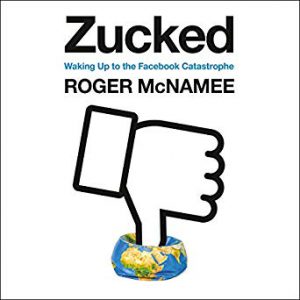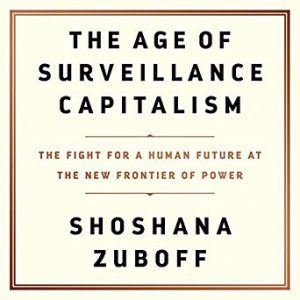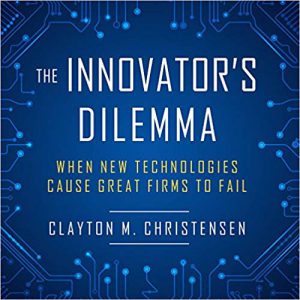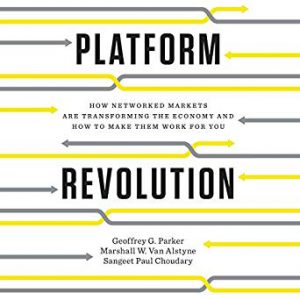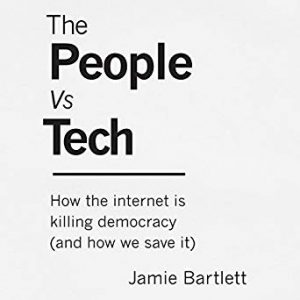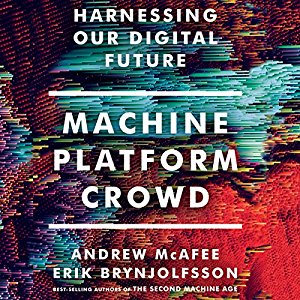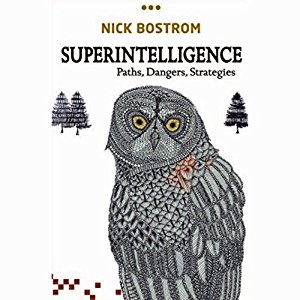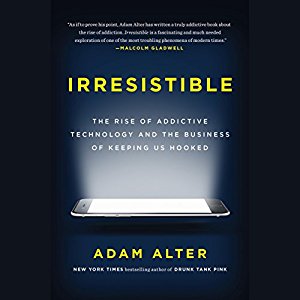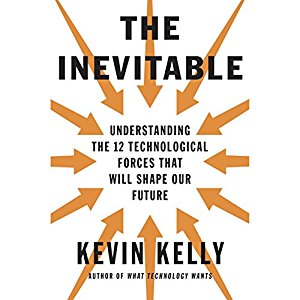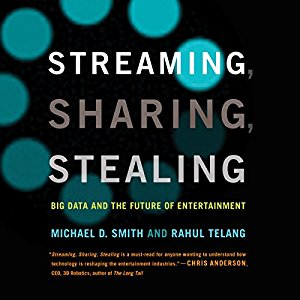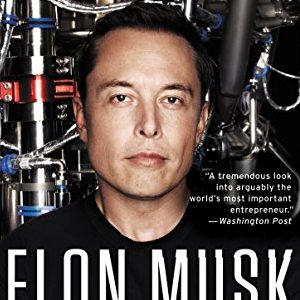When a a big tech investor like McNamee argues for stricter regulation it makes the argument more convincing.
You are the raw material of capitalists trading in futures on human behavior
Shoshana Zuboff – Surveillance capitalism
There is a tendency in critiques of ‘big tech’ to underestimate the long-term resilliance of mankind; although that does not render the argument invalid.
AI outcomes reflect the thinking of the technochauvinists that built it – which may not be desirable for society
Meridith Broussard – Artificial Unintelligence
Great effort to democratize AI and peel off some layers of mistique that harm public debate (althought the case against technochauvinism seems at times a bit too shallow).
As an incumbent, organize disruptive innovation away from your core business
Clayton Christensen – The innovator’s dilemma
The history of disc drives and mechanical excavators showcases how difficult it is for incumbents to come out on top when technological innovation hits your market.
Make sure you create value, and maintain power over transactions on your platform
Geoffrey Parker, Marshall Van Olstyne, Sangeet Choudary – Platform revolution
Remember: there are many ways in which platforms can fail!
Making a great painting is in large part a scientific achievement
Walter Isaacson – Leonardo da Vinci
Isaacson’s narrative falacy (‘Leonardo never finishing what he starts’) is at odds with the public recognition he received in his own day and age.
Internet billionaire brings down internet media outlet through overt legal action
Peter Thiel’s war on Gawker Media shows that money is a decisive factor in the US legal system.
Living ‘gamefully’ is a great way to hack your own brain
Elegant guide to putting contrarian thinking into action, which tries a bit too had to show it is scientific.
Our democratic system is not ready to deal with technological innovation
Jamie Bartlett – The people vs Tech
Summary of how tech firms form a risk for democracy, but without a thorough assessment of how technology itself can be applied to improve the democratic process.
Digitization, network effects, and participation will continue to disrupt many markets
Machine, Platform, Crowd – Andrew McAfee and Erik Brynjolfsson
Decent summary of developments with some nice examples, but not sufficiently new or surprising to classify as ‘essential reading’.
There is a myriad of ways in which AGI can be scary, but also a whole array of options humanity can pursue to stay on the top of the food chain
Mike Bostrom – Superintelligence
More thorough and nuanced than most scary-AI-will-take-over-the-world-books, but it still suffers from the same pitfall: over-estimating the importance of superintelligence for evolutionary success (two random examples: cockroaches and Donald Trump).
The applied science of addictive behaviour drives how we interact with technology
Please note the irony in the fact that Amazon does not offer this book as ebook.
Kevin Kelly – The inevitable
Enjoyable, yet somewhat theoretical, meandering between fundamental truisms and gross simplicications, leaving the reader with one key question: ‘Where does it pay off to act contrarian?’
Yuval Noah Harari – Homo Deus
Strongly opiniated view on the future of humanity, mostly valuable due to the emphasis on the role of humans in steering development of technology and AI.
Michael Smith – Streaming, Sharing, Stealing
Recent move of Disney to boycot Netflixs proves that incumbents are starting to realize the new reality.
Richard Evans – The pursuit of power
Masterful balance between major developments and impact on human scale.
Ashlee Vance – Elon Musk
Do not read the Dutch translation: Henk Popken did a crappy job.
Elmira Bayrasli – From the other side of the world
Some well chosen case studies; but with too little explanation on ‘what’ they did and too many stories about how they did it.
Leander Kahney – Jony Ive
The designer behind Steve Jobs has greatly contributed to Apple’s successful revival.
Still surprising how many Apple products were flawed (overpriced, transparent, with wheel navigation, monitorless, …)
Jill Dyche – The new IT
Align your IT department with your corporate objectives.
It seems to be impossible to write a book about IT without referring to ‘frameworks’ (= a solution a little bit more specific than a thought, but far less concrete than a plan).

